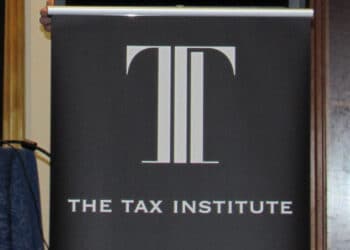Terence Wong, director of T Legal, said the decision in Knowles v Interprac Financial Planning Pty Ltd [2025] QSC 78 dealt with a claim from a client not against the adviser but the firm under whose licence he operated, although in this case their action was filed with the court after the statute of limitations window had closed.
“The case concerned a claim by Mr Knowles’ entities, including his SMSF and personal investment trust, not against the financial adviser who caused the harm and who ultimately received a three-year ban, but rather the Australian Financial Services Licence holder that authorised that financial adviser, including in relation to superannuation advice and dealing under its AFSL,” Wong said.
The facts of the case state that Knowles, with his wife, had around $68,500 in super. The couple attended a free superannuation property investment seminar run by Francis Investment Strategists Pty Ltd – a corporate authorised representative, not employee, of Interprac, which was run by Drew Grosskreutz.
“In 2011, Knowles sought Grosskreutz’s advice on investing in a townhouse or apartment which could be relatively easy to rent. This was about two years before the best interests duty came into force,” Wong said.
“Grosskreutz said the area would not deliver the capital growth or rental returns required and instead suggested that Knowles invest in an inland town about nine hours’ drive north-west.”
The court heard that Grosskreutz informed Knowles he knew the developer and sought to negotiate a rebate at settlement to allow Knowles to purchase two units in the same block that would raise his accumulated investment debt to a loan-to-value ratio of approximately 95 per cent to 97 per cent.
“Grosskreutz described this as ‘good debt’ stating that ‘taking on substantial debt and using the bank’s money to grow his own investments was how successful investors operated’,” Wong said.
In late 2012 and early 2013, Knowles invested in one villa through a new SMSF into which he rolled over his and his wife’s superannuation retirement savings and then two other villas in the same block using a new personal investment trust.
Furthermore, Grosskreutz also advised that Knowles should refinance the couple’s home mortgage, obtain $90,000 in cash from Knowles’ father, cash in his long service leave and withdraw $11,750 from savings to finance the equity deposit for the other two villas.
“All of the investments failed which coincided with a substantial decline in the property market in mid-2014. The villas had been untenanted for a significant amount of time and Knowles could not continue to make the bank loan repayments without sufficient rental cashflow,” Wong said.
“The banks forcibly sold the properties in 2017 and 2018 significantly below their original purchase price.”
He added that in 2017, ASIC banned Grosskreutz as a financial adviser for three years for advising clients to establish SMSFs to purchase properties without considering whether this was in the client’s best interests. Francis Investments was deregistered as a company in mid-2015.
“These proceedings were commenced against Interprac on 2 August 2022. Knowles’ claims in negligence and for breaches of sections 945A and 945B of the Corporations Act as applied at the time were not brought within six years from the date on which the causes of action arose and therefore failed as being statute-barred,” he said.
Wong continued that if the claims against Interprac had not been statute-barred, then one of them was found to succeed.
“The court found that Grosskreutz did not take Knowles through the warnings set out in his Statement of (Financial) Advice (SOA) to ensure that Knowles understood the material risks of the villa investments and high loan to valuation ratio,” Wong said.
“Those risks did materialise in a significant financial loss which the court found could extend the scope of Interprac’s liability to a claim by Knowles for opportunity loss. The court also found that this was a breach of the duty which Grosskreutz – and through him Interprac – owed to the Knowles’ in providing the SOA.”
He said that ultimately, the court found no negligence in the way Grosskreutz’s SOA was prepared, the appropriateness of his financial advice, or his investigation into the Knowles’ circumstances and financial status that led to the preparation of the SOA.
“Grosskreutz’s advice regarding the personal investment trust, which unlike super is not a regulated financial product, real estate and investment mortgages, was found to be outside the scope of Interprac’s authorisation for Francis Investments and could not be imputed to Interprac,” he said.
“It may have been possible for Knowles to recover some of his losses from Interprac if his claim had been brought earlier. If he had done so he could have been allowed at least in part due to the investment involving a dealing in his super (a financial product) being his emptying out of his super to invest through a new SMSF.
“Otherwise real estate and investing through a personal investment trust on its own would not fall under the financial products regulation in the Corporations Act.”


